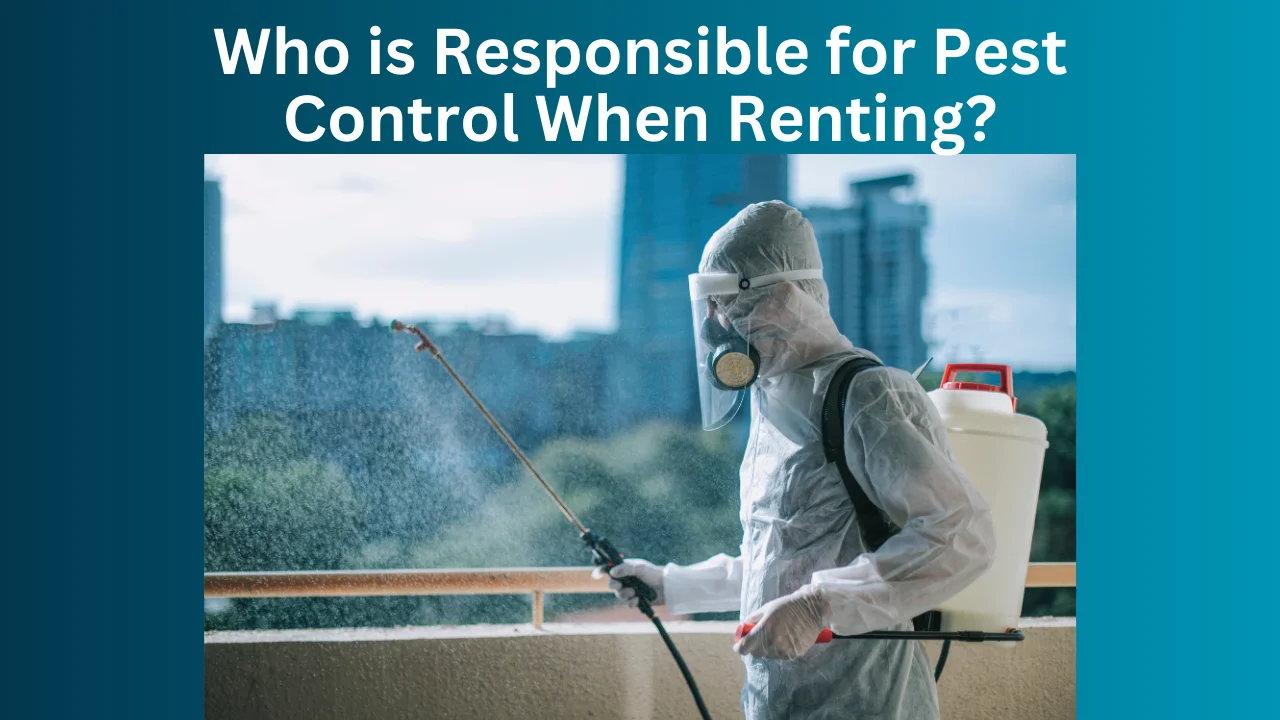Among the many duties that come with renting a property is the oversight of any necessary pest control measures. Many people wonder if the landlord or the tenant is ultimately responsible for this crucial part of property maintenance. Who is Responsible for Pest Control When Renting? Having a clear understanding of who is responsible for what helps keep the landlord-tenant relationship amicable and promotes a healthier living environment. In order to manage and prevent pest issues, this article delves into the intricate dynamics of pest control in rental properties, shedding light on duties, responsibilities, and best practices.
The Role of the Landlord
Initial Pest Inspections and Treatments
In most cases, before a tenant moves in, the landlord should make sure the property is pest-free. As part of this process, we will check everything thoroughly and treat any existing issues with pesticides if needed. The obligation of the landlord under the lease is to ensure that the property is habitable from the beginning, which is a legal requirement in many jurisdictions.
Maintenance and Regular Pest Control
Landlords have a responsibility to keep the property in a pest-free condition beyond the initial treatments. Insect and rodent inspections and treatments should be part of this routine, especially in high-risk areas. To keep pests out of your property, it’s important to do routine maintenance like fixing leaks and sealing cracks.
Addressing Structural Issues
It is the responsibility of the landlord to fix any structural problems that allow pests to enter the property. This includes fixing any holes in the walls or cracks in the foundation. Landlords are obligated to address pest issues as soon as they arise, repairing the property as needed to discourage pest entry and prevent further problems.
Providing Pest Control Resources
Landlords may also supply tenants with ant traps or suggest safe insect repellents for their use in the event that tenants experience minor pest problems. Preventing minor problems from becoming major infestations that necessitate expert help is possible with this preventative strategy.
The Tenant’s Responsibilities
Maintaining Cleanliness and Hygiene
If they don’t want to deal with pests, tenants should keep the property clean and tidy. It is expected that you will regularly dispose of garbage, put food away, and promptly clean up any spills. The chances of pests can be greatly diminished with proper housekeeping.
Reporting Pest Issues Promptly
It is the tenant’s responsibility to inform the landlord without delay in the event that a pest problem is detected. Saving money and avoiding pain, early detection can frequently stop a small problem from becoming a big infestation.
Adhering to Lease Agreements
Cleanliness and pest control are two areas where most leases outline expectations for tenants. Tenants may be held financially liable for pest control measures if they do not adhere to these terms.
Cooperation During Pest Treatment Processes
Full cooperation from tenants is required when pest control treatments are scheduled by landlords. They need to make sure their area is ready for treatment and that pest control experts can get to them easily. In order to effectively treat pest issues, tenant cooperation is crucial.
Impact of Tenant Lifestyle on Pest Control
Extermination efforts can be greatly affected by the way tenants live their lives. Some renters may need to take additional measures to avoid pests, such as those who have pets or who host gatherings often. Tenants can take the necessary precautions against pests if they are aware of the ways in which their lifestyle impacts pest control.
Navigating Pest Control Disputes
Understanding one another’s legal and contractual duties is essential for resolving disagreements over who is responsible for what in terms of pest control. Before doing anything, each party should review the terms of their lease as well as any applicable local laws. To settle conflicts in a fair and efficient manner, it may be required to use mediation or seek legal counsel in many instances.
Legal Framework and Rental Agreements
Understanding Local Laws and Regulations
Pest control responsibilities in rental properties are heavily influenced by local laws. Landlords are obligated to maintain rental units in a habitable condition and free of pests according to the health and safety regulations in most jurisdictions. In order to be in compliance and know their rights and responsibilities, tenants and landlords should read these rules and regulations.
The Importance of Lease Clauses
Pest control responsibilities are typically outlined in the lease agreement. The policies of the landlord and the area determine the specifics of these clauses. Usually, they spell out the circumstances in which the party responsible for pest control—the landlord or the tenant—is held accountable. In order to prevent any disagreements in the future, it is essential that both parties read the lease terms thoroughly before signing.
Updates and Amendments to Lease Agreements
Lease agreements may need to be updated to reflect new understandings or legal requirements as pest control issues and rental situations evolve. In areas where certain pests are common, landlords and tenants alike should be amenable to negotiating a new lease that includes provisions for pest control.
Legal Recourse for Negligence
If one party does not fulfil their duty to control pests, the other party might be able to take legal action. To name a few examples, you can break the lease without penalty, pay for pest control and deduct the cost from rent, or withhold rent. The precise legal recourses are conditional upon the provisions of the lease and applicable local legislation.
Proactive Pest Control Strategies
Regular Property Inspections
The foundation of successful pest management in rental properties is regular inspections. Landlords should do these to find possible trouble spots and fix them before they get worse. During an inspection, it is possible to look for damage, leaks, or nests of pests.
Tenant Education Programs
Tenants can be better prepared to deal with pest problems if landlords give them the tools and knowledge they need. For example, there may be recommendations for how to properly dispose of trash, how often to clean, and what to do to keep pests outside of your home. Tenants with more knowledge are more likely to continue using measures to keep pests at bay.
Integrated Pest Management
One way to manage rental properties in a more sustainable way is to implement an Integrated Pest Management (IPM) strategy. This approach takes a holistic view of pest life cycles and environmental interactions to focus on long-term prevention. Using this data in conjunction with current pest control strategies allows for the most cost-effective management of pest damage while minimising risks to humans, their homes, and the environment.
Collaboration with Pest Control Professionals
Hiring a professional pest control service may be your best bet for dealing with huge rental properties or infestations. When it comes to treatment and prevention, experts can provide more comprehensive solutions than what either landlords or tenants could manage on their own.
FAQs
Q: Can a tenant refuse pest control?
Generally, tenants cannot refuse reasonable pest control treatments mandated by landlords, especially if outlined in the lease agreement.
Q: Who pays for pest control in a rental property?
Typically, landlords pay for initial and ongoing pest control, but tenants might be responsible if their actions lead to an infestation.
Q: What happens if a tenant causes a pest infestation?
If a tenant’s actions directly lead to an infestation, they may be responsible for covering the cost of pest control.
Q: Can a landlord charge a tenant for pest control?
Landlords can charge tenants for pest control if stipulated in the lease and if the tenant is at fault for the infestation.
Q: What should I do if I find pests in my rental unit?
Report the issue to your landlord immediately to discuss the next steps for pest assessment and control.
Conclusion
Finally, everyone should pitch in to keep pests at bay in rental properties. Who is Responsible for Pest Control When Renting? Landlords are responsible for making sure the property is habitable both when tenants move in and when they leave, while tenants are responsible for keeping the property clean and helping with pest control efforts. Tenants and landlords alike can do their part to keep pests at bay and keep everyone in the building healthy and comfortable.

Shannon Reyes is a seasoned writer with a knack for crafting engaging blogs on a variety of service industries, including plumbing, cleansing, moving, pest control, and roofing. With a keen eye for detail and a passion for helping readers navigate complex topics, Shannon brings her expertise to life through informative and accessible content.











